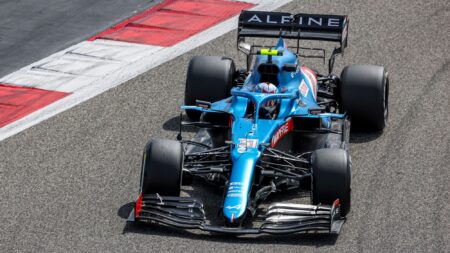It’s not as if they have years of experience working together. Brivio is new to F1, too. Perhaps it’ll be fine and they’ll have a good handle on where each other’s responsibilities begin and end – but the set-up looks like a typical politically derived car manufacturer fudge, especially in the wake of Cyril Abiteboul’s departure.
Last week I stumbled across a non-F1 precedent set by another French manufacturer, when I found myself re-reading an interview I did for Motor Sport in 2012 with former Peugeot 908 LMP1 ace Nicolas Minassian.
The amiable, long-anglicised Frenchman is always good company and when I caught up with him at Silverstone Classic, where he relished the chance to drive a Peugeot 905 Group C car, he was happy to discuss aspects of his five years with the manufacturer, whom he’d just quit not long before it made a shock withdrawal from sports car racing almost on the eve of the new World Endurance Championship.
According to Minassian, there were clear reasons why the fast 908 only claimed a single Le Mans 24 Hours win, in 2009, despite often carrying a pace advantage over the Audis – and he pointed the finger directly at (mis)management.
“It was a shame how it ended,” Minassian told me. “Last winter, I put out a press release saying I was off, because they couldn’t offer me a contract. They said ‘Ah, don’t worry, Nic. We’re going to give you a car’. But I was fed up waiting, I lost my patience. And between Bruno Famin [former technical director and then boss of Peugeot Sport] and Olivier Quesnel [who ran Peugeot Sport during the 908 era]… Quesnel was never reachable on the phone, and Famin would tell you one thing, then Quesnel would tell you another. Both of them were thinking they were the boss.”
Two chiefs muddying the field? Oh dear. Renault isn’t about to ‘do a Peugeot’ with Alpine – is it? If it does, we’ll surely soon hear about it. Alonso isn’t a man with time to waste if internal politics begin to derail his comeback.


